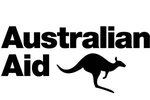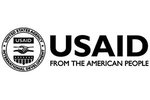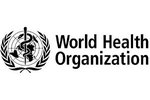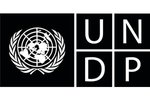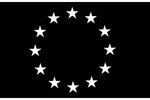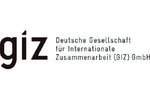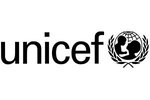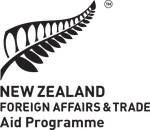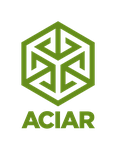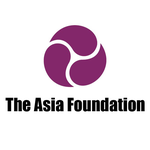Implementing mobile learning in a Papua New Guinea hospital
Words by Ezekiel Tetang, Support Coordinator for Kumul Helt Skul at ANGAU Memorial Provincial Hospital
I work as a Clinical Support Program Manager, mainly focusing on clinical programs at ANGAU Memorial Provincial Hospital (AMPH) in Lae, Papua New Guinea under the PNG-Australia Partnership.
One of my roles and responsibilities is to be the support coordinator, person on the ground, coordinating the Kumul Helt Skul program in partnership with Catalpa.
The need for professional development opportunities
Although they are qualified and trained professionals, the majority of clinicians at ANGAU haven't gone for any staff development or staff upskilling since they've started working with the hospital. For many, the only time that they've participated in training or professional development is when they attended nursing or nursing colleges.
For the medical officers - doctors and registrars - that percentage increases a bit. They are given more opportunity when it comes to staff development as there are training opportunities suited to their specialisations.
So Kumul Helt Skul provided an opportunity for clinicians to experience a new, upgraded way of learning online. For most of them, it was something completely new.
Program roll out
The program was piloted with the emergency department and delivered in close consultation with Australian College of Emergency Medicine and various department leads.
The pilot focused on how to treat patients, and how to manage incoming patients in an emergency triage area.
Eventually, the same approach was rolled out to all other departments as well. We were trialling it and taking learning on board as we went.
Challenges
There were a lot of challenges that we faced. Given that many of our staff had not undertaken further study for a long time, some found it challenging to bring their mindset back into learning mode.
Additionally, most of the clinical staff are not exposed to or are not well-versed with mobile technology. So, it was a bit difficult for them to access online. Unlike the younger generation who are more into Facebook and WhatsApp. Younger staff found it was easy to access the app.
Also, all public hospitals throughout the country lack IT resources so accessibility to a reliable internet connection is a challenge. This makes it harder for staff to do studies.
Anywhere, anytime learning
The feedback I’ve received most is that people like that the app can be accessible anywhere. Those who are keen to learn more, have access to references and they have done further reading on certain topics.

Almost 60% of the staff have told me they've accessed courses during their lunch break or when sitting in the break room. It's no longer restricted to a classroom. You take learning everywhere you go.

Features for success
The Kumul Helt Skul application itself is very user-friendly. How it's been designed and the features, it's very straightforward, self-explanatory and very user-friendly. The language and content is suitable for all different levels of clinicians that we have - medical officers including doctors and registrars, as well as nurses and community health workers.
Most staff, about 85%, have given very positive feedback. People over the age of 45 especially liked the online learning platform. It's something new to them and they were satisfied that they were able to participate.
Kumul Helt Skul broadened their understanding, as they have been more or less confined to their working environment, which is their comfort zone. But this gave them the opportunity to see their work from a broader perspective.
Putting learning into practice
One example of seeing Kumul Helt Skul changing work practices was within the operating theatre.
As the operating theatre staff undertook learning on certain topics, they encouraged each other to try to use that new knowledge in the workplace, and try to actually practise what they covered in the modules.
They formed a group and they discussed amongst themselves. Some, when they have free time, or went on lunch breaks, worked together to attempt new modules.
One example is the staff's improved understanding of gowning within the team. They said they now have better knowledge of how to avoid gowns getting contaminated with bacteria before surgery. After completing the KHS lessons, they came together to talk amongst themselves about how they could better meet National Department of Health standards and reduce risk to patients.
The future of professional learning
I see the future of learning in this online format. If we are serious about educating the next generation of clinicians and keeping up to date with the general changes, this is the way forward. Because it's online, and it's readily available and people can access it anywhere.
I would love to see Kumul Helt Skul and online learning continue as part of the ANGAU Hospital Redevelopment project and beyond. At the very least we would like to see that it reaches all our clinicians who haven't had a chance to go for further studies or do further upskilling while on the job.
The ANGAU Hospital Redevelopment is an example of a successful partnership in action, showing that when we work together, everyone benefits. The project is part of the Australian Government’s commitment to redevelop and strengthen healthcare in PNG through the PNG-Australia Partnership.
In the period between May 2021 and March 2023, the 28 courses on Kumul Helt Skul were fully completed 950 times by staff at ANGAU Hospital.
The findings of an independent evaluation of the Kumul Helt Skul program were published in The Lancet Regional Health - Western Pacific journal in February 2023.
The program was delivered in partnership with the National Department of Health Papua New Guinea, with support through the PNG-Australia partnership.
